XCD35
User Manual
�
Notes and Warnings
NOTE: A NOTE indicates important information
that helps you make better use of your computer.
WARNING: A WARNING indicates a potential
for property damage, personal injury, or death.
Information in this document is subject to change without
notice.
© 2010 Dell Inc. All rights reserved.
Reproduction of these materials in any manner whatsoever
without the written permission of Dell Inc. is strictly forbidden.
Trademarks used in this text: Dell and the DELL logo are
trademarks of Dell Inc.
Other trademarks and trade names may be used in this
document to refer to either the entities claiming the marks
and names or their products.
Dell Inc. disclaims any proprietary interest in trademarks
and trade names other than its own.
August 2010 P/N GJ8JW Rev. A00
2
�
For Your Safety
Product Safety Information
Read the Safety
Information section
of this user guide
on this page
Do not use
hand-held while
driving
For body-worn
operation maintain
a separation of 15
mm
Small parts may
cause a choking
hazard
This device may
produce a loud
sound
Keep away from
pacemakers and
other personal
medical devices
Do not use while
re-fuelling
This device may
produce a bright or
flashing light
Do not dispose of it
in a fire
Avoid contact with
magnetic media
Avoid Extreme
Temperatures
Avoid any contact
with liquid, keep it
dry
3
�
Switch off when
instructed in
hospitals and
medical facilities
Switch off when
instructed in
aircrafts and
airports
Switch off in
explosive
environments
Do not attempt to
disassemble
Do not rely on this
device for
emergency
communications
Only use approved
accessories
RF Exposure
General Statement on RF Energy
Your phone contains a transmitter and a receiver. When it
is ON, it receives and transmits RF energy. When you
communicate with your phone, the system handling your
call controls the power level at which your phone transmits.
Specific Absorption Rate (SAR)
Your mobile device is a radio transmitter and receiver. It is
designed not to exceed the limits for exposure to radio
waves recommended by international guidelines. These
guidelines were developed by the independent scientific
organization ICNIRP and include safety margins designed
4
�
to assure the protection of all persons, regardless of age
and health.
The guidelines use a unit of measurement known as Specific
Absorption Rate, or SAR. The SAR limit for mobile devices is
2 W/kg and the highest SAR value for this device when
tested at the ear was 1.58 W/kg*. As mobile devices offer a
range of functions, they can be used in other positions,
such as on the body as described in this user guide**.
As SAR is measured utilizing the device's highest transmitting
power, the actual SAR of this device while operating is
typically below that indicated above. This is due to automatic
changes to the power level of the device to ensure it only
uses the minimum power required to communicate with
the network.
* The tests are carried out in accordance with IEC standard
PT62209-1.
** Please see body worn operation.
Body-worn Operation
Important safety information regarding radio frequency
radiation (RF) exposure:
To ensure compliance with RF exposure guidelines the
phone must be used with a minimum of 15 mm separation
from the body.
Failure to observe these instructions could result in your RF
exposure exceeding the relevant guideline limits.
5
�
Limiting Exposure to Radio Frequency (RF)
Fields
For individuals concerned about limiting their exposure to
RF fields, the World Health Organization (WHO) provides
the following advice:
Precautionary measures: Present scientific information
does not indicate the need for any special precautions for
the use of mobile phones. If individuals are concerned,
they might choose to limit their own or their children’s RF
exposure by limiting the length of calls, or using ‘hands-free’
devices to keep mobile phones away from the head and
body.
Further information on this subject can be obtained online
from the WHO fact sheet N°193 at
http://www.who.int/mediacentre/factsheets/fs193/en/
Regulatory Information
The following approvals and notices apply in specific regions
as noted.
Distraction
Driving
Full attention must be given to driving at all times in order to
reduce the risk of an accident. Using a phone while driving
(even with a hands free kit) can cause distraction and lead
6
�
to an accident. You must comply with local laws and
regulations restricting the use of wireless devices while
driving.
Operating Machinery
Full attention must be given to operating the machinery in
order to reduce the risk of an accident.
Product Handling
General Statement on Handling and Use
You alone are responsible for how you use your phone and
any consequences of its use.
You must always switch off your phone wherever the use
of a phone is prohibited. Use of your phone is subject to
safety measures designed to protect users and their
environment.
• Always treat your phone and its accessories with care
and keep it in a clean and dust-free place.
• Do not expose your phone or its accessories to open
flames or lit tobacco products.
• Do not expose your phone or its accessories to liquid,
moisture or high humidity.
• Do not drop, throw or try to bend your phone or its
accessories.
7
�
• Do not use harsh chemicals, cleaning solvents, or aerosols
to clean the device or its accessories.
• Do not paint your phone or its accessories.
• Do not attempt to disassemble your phone or its
accessories, only authorized personnel should do so.
• Do not expose your phone or its accessories to extreme
temperatures, minimum - [5] and maximum + [50]
degrees Celsius.
• Please check local regulations for disposal of electronic
products.
• Do not carry your phone in your back pocket as it could
break when you sit down.
Small Children
Do not leave your phone and its accessories within the
reach of small children or allow them to play with it.
They could hurt themselves or others, or could accidentally
damage the phone.
Your phone contains small parts with sharp edges that may
cause an injury or may become detached and create a
choking hazard.
Demagnetization
To avoid the risk of demagnetization, do not allow electronic
devices or magnetic media close to your phone for a long time.
8
�
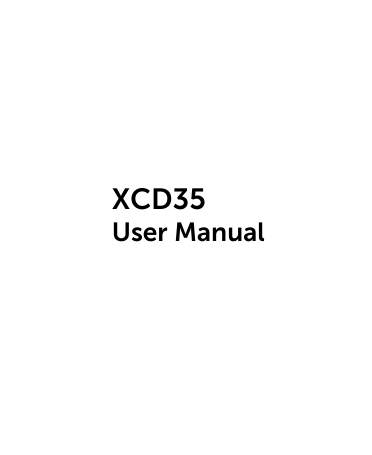
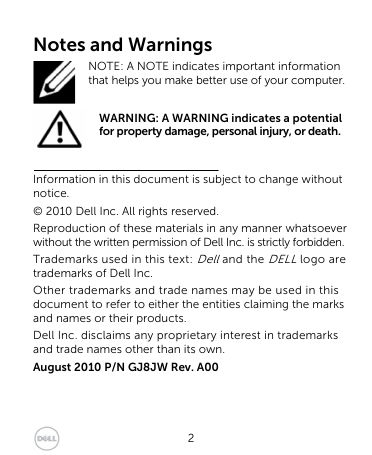
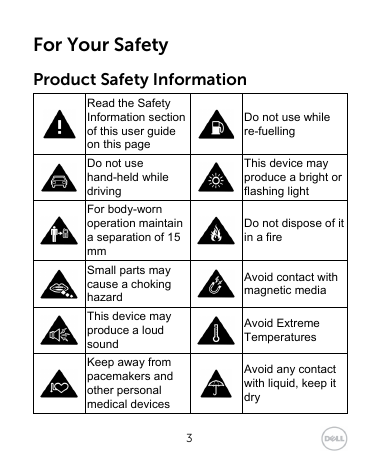
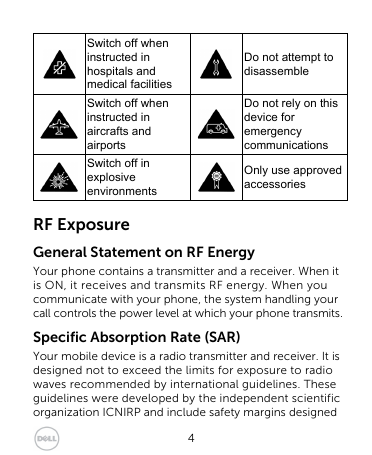
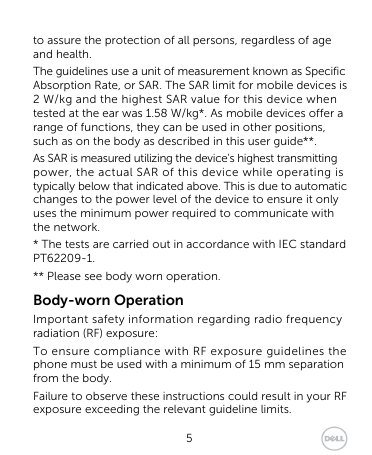
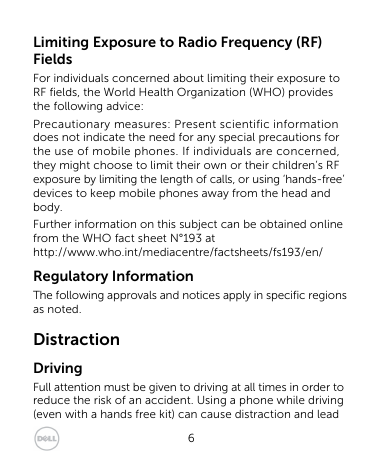
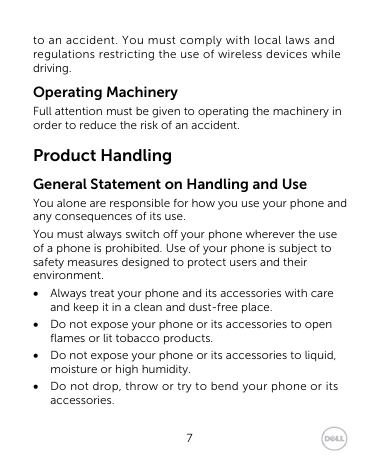
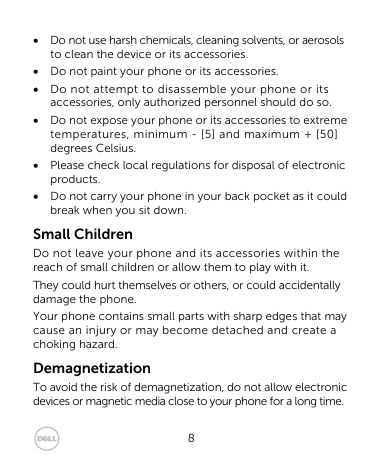








 2023年江西萍乡中考道德与法治真题及答案.doc
2023年江西萍乡中考道德与法治真题及答案.doc 2012年重庆南川中考生物真题及答案.doc
2012年重庆南川中考生物真题及答案.doc 2013年江西师范大学地理学综合及文艺理论基础考研真题.doc
2013年江西师范大学地理学综合及文艺理论基础考研真题.doc 2020年四川甘孜小升初语文真题及答案I卷.doc
2020年四川甘孜小升初语文真题及答案I卷.doc 2020年注册岩土工程师专业基础考试真题及答案.doc
2020年注册岩土工程师专业基础考试真题及答案.doc 2023-2024学年福建省厦门市九年级上学期数学月考试题及答案.doc
2023-2024学年福建省厦门市九年级上学期数学月考试题及答案.doc 2021-2022学年辽宁省沈阳市大东区九年级上学期语文期末试题及答案.doc
2021-2022学年辽宁省沈阳市大东区九年级上学期语文期末试题及答案.doc 2022-2023学年北京东城区初三第一学期物理期末试卷及答案.doc
2022-2023学年北京东城区初三第一学期物理期末试卷及答案.doc 2018上半年江西教师资格初中地理学科知识与教学能力真题及答案.doc
2018上半年江西教师资格初中地理学科知识与教学能力真题及答案.doc 2012年河北国家公务员申论考试真题及答案-省级.doc
2012年河北国家公务员申论考试真题及答案-省级.doc 2020-2021学年江苏省扬州市江都区邵樊片九年级上学期数学第一次质量检测试题及答案.doc
2020-2021学年江苏省扬州市江都区邵樊片九年级上学期数学第一次质量检测试题及答案.doc 2022下半年黑龙江教师资格证中学综合素质真题及答案.doc
2022下半年黑龙江教师资格证中学综合素质真题及答案.doc